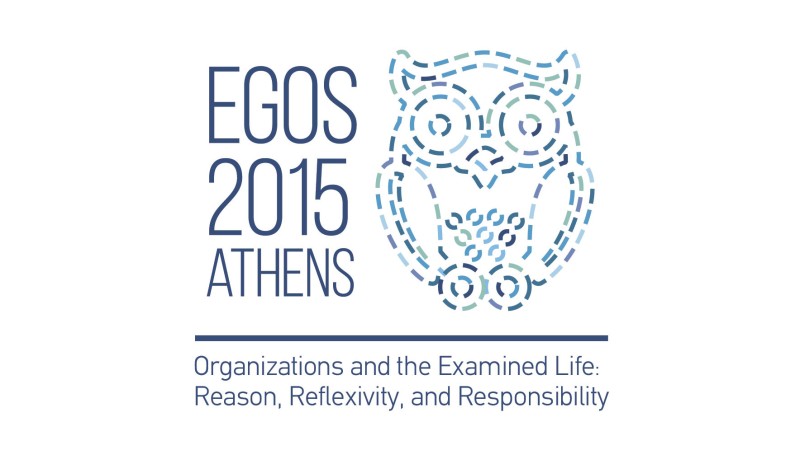Sub-theme 60: Stewardship as a Post-GFC Standard of Legitimacy
Call for Papers
Stewardship, as the responsible power to guide behaviour, is well founded as a critical element of organizational control.
We believe it is time to reinvigorate it’s meaning and invest in its relevance for organizational behaviour. We propose renovating
the construct of Stewardship as a timely, rallying, normative standard for enterprises and practitioners. Such a renovation
would including restoring the central place afforded human values, such as respect for human dignity (Kant, 1784/2006; Dworkin,
2011) while extending the dedication to safe-guarding "the commons", as for example, in the UN principles of sustainable development
(UN Compact, 2012). We envisage Stewardship as both a personal and organizational normative standard. Essential to that restoration
would be research investment in understanding institutional conditions that foster dedication to what constitutes public wellbeing
(Selznick, 2012).
The theme of the 2015 EGOS Colloquium presents a timely opportunity to reflect on organizational
studies and practice – specifically in light of the Global Financial Crisis (GFC). This sub-theme reconceptualises the place
of Stewardship as an organizational and personal standard of public trust. Our ambition is to investigate possible synergistic
benefits in making public commitments to such a standard on both national and a global scale.
While the concept
of Stewardship has mixed origins and while over the last couple of decades it has gained reasonable traction in terms of sustainability
the concept has not been translated for broader organizational or professional management purposes. A prominent exception
is Peter Block's pioneering "Stewardship" (Block, 2013). In posing this sub-theme we seek to facilitate a dialogue exploring
and assessing the merit of Stewardship for both organizational and personal purposes. At the enterprise level Stewardship
would relate to practices around the use of natural resources but equally the salience of human wellbeing in those practices
– both immediate and intergenerational (Elias, 1990/2011). We envisage equivalent concerns for individual practice – not least
for those engaged in managing and leading within enterprises.
There has been considerable empirical work over
the last decade exploring the merit of phronesis/practical wisdom (Flyvbjerg, 2001; Clegg & Pitsis, 2013). Further insights
can be gleaned through work on cultivating moral judgement and accountability – notably via Kant's moral anthropology (Jarvis,
2009; 2011). Similarly, Rego, Cunha and Clegg (2012) have drawn together works under the rubric of the Virtues of Leadership.
At the same time major inroads have been made into governance and sustainability (Benn, 2007).
While each of
these perspectives can be seen as advancing aspects of Flyvbjerg's restoration of phronesis (practical wisdom) in organizational
practices, we suggest that these various perspectives might be more influential if firstly recognized as parts of a larger
related construction, and secondly, when clearly and openly professed. We are proposing Stewardship as a robust frame housing
what might enhance and galvanize relevant perspectives – phronesis, Kant's moral anthropology, virtues of leadership and public
accountability. Credibility demands that publicly professed dedication however would be needed at personal and institutional
levels.
The following are some of the questions that could be addressed:
- From a power perspective, how does Stewardship focus organizational attention on broader and temporal (intra and inter generational) consequences – irrespective of sector, maturity and scale of the enterprise?
- Beyond serving as a framework to merely accommodate diverse perspectives how does Stewardship serve as a powerful action-guiding principle – for both individuals and organizations?
- How might different philosophical approaches develop self-regulating maxims or standards for public accountability?
- What is the role of specific forms of profession-like judgement and knowledge in facilitating or hindering public accountability?
- What are the connections between Stewardship and various positions in organization theory and moral anthropology?
- In what ways can the notion of Stewardship be a rallying focus for human dignity (Dworkin, 2011)?
- Where do other species fit in to the picture of Stewardship? What are the organizational implications of existing practices of husbandry and slaughter? What obligations are owed not only to others, but also other species?
Accordingly we seek
to create an opportunity for dialogue on interpretations and translations of Stewardship as a profession-like standard in
the public interest. Such a standard would help to reinforce the essential context that all enterprises are embedded in society
(Polanyi, 1944) and thus serve public wellbeing. In the wake of the GFC Stewardship may prove to be a rallying standard that
helps to restore much needed dedication. Offsetting justifiable public scepticism of such a normative commitment is the kind
of legitimacy challenge this post GFC generation of practitioners and educators alike need and, we sense, would welcome.
References
- Block, P. (2013): Stewardship: Choosing Service Over Self-Interest. San Francisco: Berrett-Koehler Publishers.
- Clegg, S.R., & Pitsis, T.S. (2012): "Phronesis, projects and power research." In: B. Flyvbjerg, T. Landman & S. Schram (eds.): Real Social Science. Oxford University Press, pp. 66–91.
- Dworkin, R. (2011): Justice for Hedgehogs. Cambridge, MA: Belknap/Harvard University Press.
- Flyvbjerg, B. (2001): Making Social Science Matter: Why Social Inquiry Fails and How it Can Succeed Again. Cambridge: Cambridge University Press.
- Jarvis, W.P. (2009): Moral Accountability in the MBA: A Kantian Response to a Public Problem. Sydney: University of Technology.
- Jarvis, W.P. (2011): "Restoring public trust in the MBA: A road-tested Kantian approach." In: W. Aman (ed.): Business Schools Under Fire: Humanistic Management as the Way Forward. New York: Palgrave Macmillan, pp. 147–170.
- Kant, I. (1874): Answer the Question: What is enlightment?
- Rego, A., Cunha, M.P., & Clegg, S. (2012): The Virtues of Leadership. Oxford: Oxford University Press
- Selznick, P.A. (2008): Humanist Science: Values and Ideals in Social Inquiry. Stanford: Stanford University Press.


